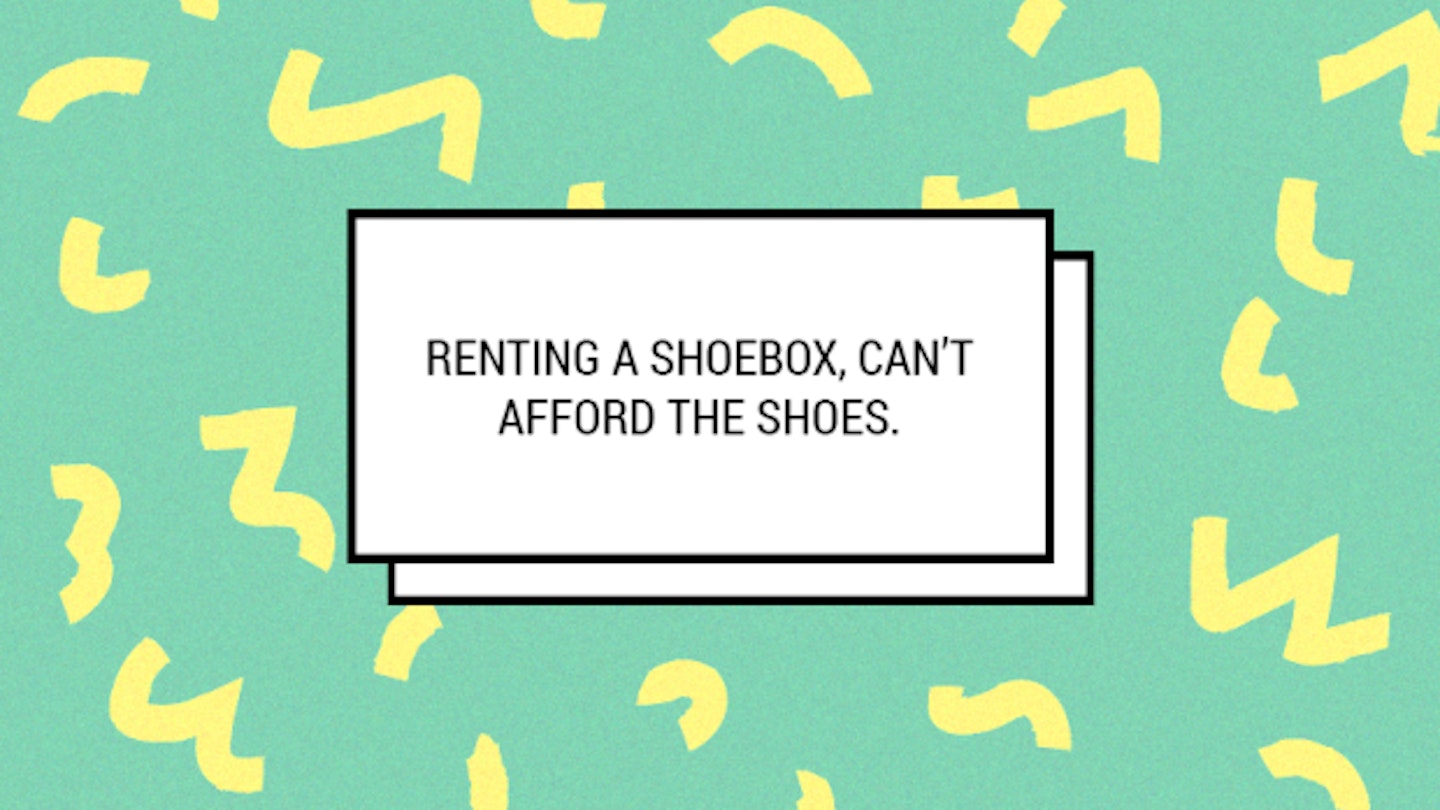The viewing was underlined in my friend Katie’s diary. After three months of lunch breaks masochistically browsing Rightmove properties with at least one too many zeroes in their price tag, an agent had called, breathlessly, about a ‘cute, really unusual studio flat'.
Sure, it was out in the suburbs, a boring commute from the centre of London, but it was going for £290,000. With a massive mortgage, that seemed just about affordable.
Home ownership fell to its lowest level in 25 years in 2013, while the number of private tenants overtook the number in social housing for the first time.
So Katie was kind of disappointed to find herself being shown round a tiny converted garage. The kitchen was smaller than her office desk. She phoned me during the long bus trip back to her rented flat, ‘House prices are rising faster than I can blink, my landlord just raised my rent, and the amount I’ve got saved up will only barely pay for a garage. Will I ever be able to buy my own home?’
She’s not alone. And sadly for many of us who make up what’s helpfully known as Generation Y, it looks like the answer really could be no. Home ownership fell to its lowest level in 25 years in 2013, while the number of private tenants overtook the number in social housing for the first time, according to the English housing survey.
Sure, there are initiatives to help. During last week's Budget, the Government extended the Help to Buy scheme, where loans from the taxpayers' purse means buyers can put down a deposit of just 5% until 2020. But the scheme’s extra billions to help the have-nots enter the housing market have had a dangerous side-effect, pushing up demand while not enough houses are being built to bolster supply.
The outcome is that some blame Help to Buy for rising house prices – up more than 8% in Britain last year, and 12% in London, where the average home now costs a whopping £409,000. One campaign group reckons a quarter of a million renters have been priced out of home ownership since the launch of Help to Buy.
Elsewhere, there are shared ownership schemes, where buyers can acquire a portion of a property and rent the rest. But that’s not enough to fix the housing crisis, where sharply rising prices and tougher mortgage criteria, plus a lack of affordable homes being built, have squeezed a generation out of the market.
Meantime, private rents have also been sent soaring through the roof, making it even harder to build up a decent deposit. ‘There are still too few homes being built to keep up with population growth, which in turn pushes up demand for limited housing stock and therefore house prices,’ says Graham Beale, chief executive of Nationwide building society. ‘108,000 new homes were built in England in the 12 months to September 2013. This is still less than half the number of new households predicted to be created annually over the next five years.’
The resulting rising prices are all especially grim news for 20-somethings, who also face high unemployment, record levels of student debt, unpaid internships and zero-hour contracts.
So is the UK about to become a nation of renters? That’s the case in swathes of Europe, including Germany, whose economy is flourishing.
And for anyone who does raise the cash, there’s more doom around the corner, as David Plumtree, chief executive of Sequence, whose estate agents include Barnard Marcus and Fox & Sons, puts it, ‘There are now eight buyers chasing every new instruction. The shortage of available property is resulting in rapid price growth, and showing no signs of slowing down unless the supply/demand imbalance is rectified.’
So is the UK about to become a nation of renters? That’s the case in swathes of Europe, including Germany, whose economy is flourishing. There’s a big difference between here and there, thoug, its cities have highly-regulated rents, meaning tenants can get a fairer deal.
Back in this country, experts predict the improving economy will see the Bank of England raise interest rates next spring. That could stymy some of the current bubbling demand for houses, evidenced by queues at ‘open house’ viewings for new properties, as well as those rapidly-rising prices. But it will also make Generation Y’s attempt to buy that first property more expensive and more difficult.
Unlike our parents, who bought properties a few decades ago and surfed the tide of rising prices, we’ve turned up too late to the party. The music might still be on, and there are a few bottles of booze going spare, but they cost too much for many of us to partake.
Follow Lucy Tobin on Twitter @lucytobin
Illustration: Ellie Andrews
This article originally appeared on The Debrief.
